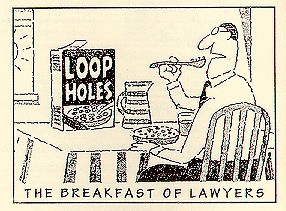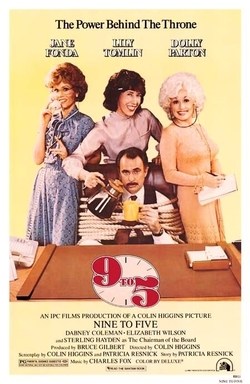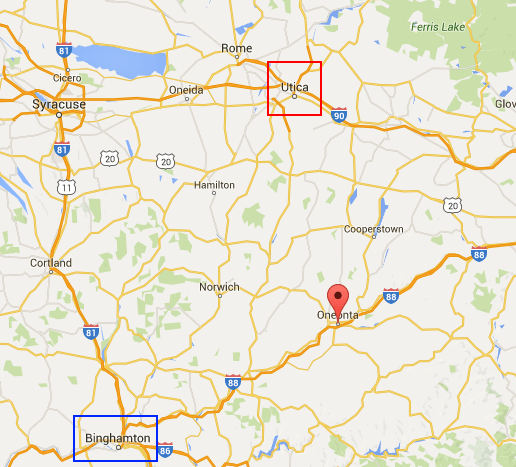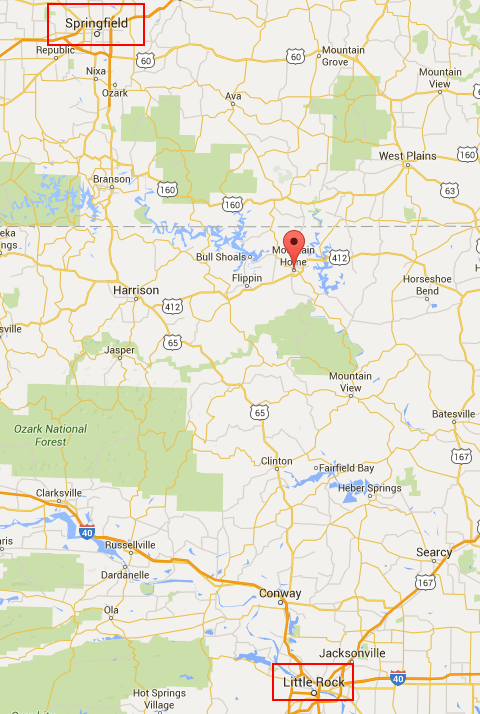 A condition imposed by the Federal Communications Commission requiring newly merged Charter-Time Warner Cable-Bright House to expand service into at least two million new homes already served by another cable or phone company already offering High Speed Internet is causing heartburn for smaller cable and phone companies that fear government-mandated competition in their service areas.
A condition imposed by the Federal Communications Commission requiring newly merged Charter-Time Warner Cable-Bright House to expand service into at least two million new homes already served by another cable or phone company already offering High Speed Internet is causing heartburn for smaller cable and phone companies that fear government-mandated competition in their service areas.
FCC chairman Thomas Wheeler has long believed that cable operators could compete against one another for customers, driving down prices for consumers while forcing service improvements. One of the conditions approving the Charter deal could have put Wheeler’s theory to the test, but not if Charter can help it.
Charter CEO Thomas Rutledge implied that he will continue to shield fellow cable operators from unwanted competition.
“When I talked to the FCC, I said I can’t overbuild another cable company, because then I could never buy it, because you always block those,” Rutledge said at last month’s MoffettNathanson Media & Communications Summit. “It’s really about overbuilding telephone companies.”
It seems unlikely Charter will ever directly overbuild one of its friends in the cable industry, especially important ones like Comcast, Cox, and Cablevision. Smaller independent cable companies don’t feel as secure, which is why the trade group that represents many of them, the American Cable Association, has tried to get the FCC to back off.
 “The overbuild condition imposed by the FCC on Charter is stunningly bad and inexplicable government policy,” ACA president Matthew Polka said in a statement. “On the one hand, the FCC found that Charter will be too big and therefore it imposed a series of conditions to ensure it does not exercise any additional market power. At the same time, the FCC, out of the blue, is forcing Charter to get even bigger.”
“The overbuild condition imposed by the FCC on Charter is stunningly bad and inexplicable government policy,” ACA president Matthew Polka said in a statement. “On the one hand, the FCC found that Charter will be too big and therefore it imposed a series of conditions to ensure it does not exercise any additional market power. At the same time, the FCC, out of the blue, is forcing Charter to get even bigger.”
The FCC probably crafted the deal conditions to force Charter to compete with other cable operators, because one million of those new customer locations must be where at least 25Mbps broadband service is already available. That protects many phone companies still offering DSL as an afterthought, because most don’t offer speeds anywhere close to 25Mbps. But the FCC left several counter-intuitive loopholes in the language that Republican FCC commissioner Ajit Pai says lends credibility to the ACA’s argument.
“Unless Charter chooses to exclusively overbuild areas served by Comcast, which I find highly unlikely, Charter’s increased broadband market share will come at the expense of smaller competitors,” Pai wrote in comments about the proposal.
 Notably, Charter is allowed to buy up other small telecom companies and count up to 250,000 of their customers towards the one million new homes served requirement. If those are small rural cable companies, that means the FCC is allowing Charter to grow even larger instead of providing more competition. Charter could also choose to overbuild municipal broadband providers and co-ops, especially in areas next to existing Charter/TWC/Bright House systems. That would harm the FCC’s current interest in removing roadblocks to publicly owned broadband networks. Enthusiasm for such networks could be dampened if Charter is willing to wire the area at their own expense.
Notably, Charter is allowed to buy up other small telecom companies and count up to 250,000 of their customers towards the one million new homes served requirement. If those are small rural cable companies, that means the FCC is allowing Charter to grow even larger instead of providing more competition. Charter could also choose to overbuild municipal broadband providers and co-ops, especially in areas next to existing Charter/TWC/Bright House systems. That would harm the FCC’s current interest in removing roadblocks to publicly owned broadband networks. Enthusiasm for such networks could be dampened if Charter is willing to wire the area at their own expense.
Rutledge’s announcement is sure to make life uncomfortable for a number of rural phone companies that have invested in fiber network upgrades and now face the potential of Charter taking away customers that are helping to pay off those upgrades.
An unintended consequence of the FCC’s various loopholes could place a heavy burden on independent telephone companies that invested in network upgrades for faster broadband even as wealthier and larger phone companies are protected from that competition by delivering frustratingly slow DSL.
One potential target for a Charter overbuild could be UniTel, headquartered in Unity, Maine. UniTel offers residential customers in Albion, Dixmont, Newburgh, Thorndike, Troy, and Unity broadband speeds up to 1 gigabit. Unity is located between Bangor and Portland — both served by Time Warner Cable (now Charter).
Phone companies like UniTel call the FCC’s mandate “artificial competition” that could put it and other rural independent phone companies into financial distress. UniTel has a speed edge over anything Charter plans to offer customers in the immediate future as it deploys fiber to the home service, but television is another matter. One of the benefits of being a large cable company is volume-discounted pricing for cable television networks. Smaller independent operators cannot compete when wholesale television programming discounts are calculated in, allowing larger companies to undercut smaller ones with lower pricing.
UniTel officials criticized the FCC for creating deal conditions that Charter will exploit to the detriment of improving rural broadband service.
“Rather than allow New Charter to unilaterally narrow the scope of the buildout condition to meet its own business objectives, UniTel respectfully urges that the Commission should act to narrow the scope of any buildout condition, not to meet the private business objectives of New Charter, but rather to meet the public policy objectives of universal service in rural areas,” the company argued in its filing with the FCC.
A handful of rural telecom associations generally agree with UniTel and want the FCC to retarget Charter’s buildout requirements to fixing the rural broadband problem by expanding into unserved service areas instead.


 Subscribe
Subscribe

 A
A  “The overbuild condition imposed by the FCC on Charter is stunningly bad and inexplicable government policy,” ACA president Matthew Polka said in a statement. “On the one hand, the FCC found that Charter will be too big and therefore it imposed a series of conditions to ensure it does not exercise any additional market power. At the same time, the FCC, out of the blue, is forcing Charter to get even bigger.”
“The overbuild condition imposed by the FCC on Charter is stunningly bad and inexplicable government policy,” ACA president Matthew Polka said in a statement. “On the one hand, the FCC found that Charter will be too big and therefore it imposed a series of conditions to ensure it does not exercise any additional market power. At the same time, the FCC, out of the blue, is forcing Charter to get even bigger.” Notably, Charter is allowed to buy up other small telecom companies and count up to 250,000 of their customers towards the one million new homes served requirement. If those are small rural cable companies, that means the FCC is allowing Charter to grow even larger instead of providing more competition. Charter could also choose to overbuild municipal broadband providers and co-ops, especially in areas next to existing Charter/TWC/Bright House systems. That would harm the FCC’s current interest in removing roadblocks to publicly owned broadband networks. Enthusiasm for such networks could be dampened if Charter is willing to wire the area at their own expense.
Notably, Charter is allowed to buy up other small telecom companies and count up to 250,000 of their customers towards the one million new homes served requirement. If those are small rural cable companies, that means the FCC is allowing Charter to grow even larger instead of providing more competition. Charter could also choose to overbuild municipal broadband providers and co-ops, especially in areas next to existing Charter/TWC/Bright House systems. That would harm the FCC’s current interest in removing roadblocks to publicly owned broadband networks. Enthusiasm for such networks could be dampened if Charter is willing to wire the area at their own expense. Time Warner Cable subscribers in Otsego County, N.Y. have been able to watch WBNG-TV, the CBS affiliate in Binghamton, since there has been a cable company called Time Warner Cable. But as of yesterday, that is no longer the case. In Baxter County, Ark., Suddenlink customers suddenly lost KARK (NBC) and KTHV (CBS), two stations from Little Rock, after the cable company decided it would henceforth only carry KYTV (NBC) and KOLR (CBS) instead. Part of the problem for subscribers is those two stations are located in Springfield, Missouri, a different state.
Time Warner Cable subscribers in Otsego County, N.Y. have been able to watch WBNG-TV, the CBS affiliate in Binghamton, since there has been a cable company called Time Warner Cable. But as of yesterday, that is no longer the case. In Baxter County, Ark., Suddenlink customers suddenly lost KARK (NBC) and KTHV (CBS), two stations from Little Rock, after the cable company decided it would henceforth only carry KYTV (NBC) and KOLR (CBS) instead. Part of the problem for subscribers is those two stations are located in Springfield, Missouri, a different state.
 Another cable company with cost-cutting fever is Altice-owned Suddenlink, which stopped carrying the two Little Rock-based broadcast stations in northern Arkansas on June 7, leaving KATV (ABC) as the only central Arkansas-based news outlet on the cable provider’s Mountain Home-area system.
Another cable company with cost-cutting fever is Altice-owned Suddenlink, which stopped carrying the two Little Rock-based broadcast stations in northern Arkansas on June 7, leaving KATV (ABC) as the only central Arkansas-based news outlet on the cable provider’s Mountain Home-area system. Suddenlink has standing orders from Altice to look for savings wherever possible, but none of those savings are returned to subscribers. The loss of the stations has not reduced anyone’s cable bill and Suddenlink recently moved TBS and INSP — a Christian cable network — to a more costly Expanded Basic tier. In place of the two networks dropped from the Basic package are home shopping networks that actually make Suddenlink money – Evine Live and Jewelry TV.
Suddenlink has standing orders from Altice to look for savings wherever possible, but none of those savings are returned to subscribers. The loss of the stations has not reduced anyone’s cable bill and Suddenlink recently moved TBS and INSP — a Christian cable network — to a more costly Expanded Basic tier. In place of the two networks dropped from the Basic package are home shopping networks that actually make Suddenlink money – Evine Live and Jewelry TV. Premium movie channels Starz and Encore
Premium movie channels Starz and Encore 